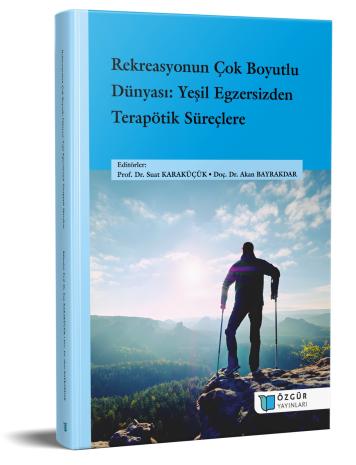
The Relationship Between Adventure Recreation, Sensation Seeking, and Mood State
Chapter from the book:
Karaküçük,
S.
&
Bayrakdar,
A.
(eds.)
2025.
The Multidimensional World of Recreation: From Green Exercise to Therapeutic Processes.
Synopsis
In modern societies, the stressful, routine-based lifestyles and disconnection from nature have increased individuals’ interest in alternative recreational activities. In this context, adventure recreation has emerged as a significant form of activity that challenges physical limits and provides psychological satisfaction. Adventure recreation typically involves nature-based, risk-involving, and high-stimulation activities (e.g., mountaineering, canoeing, paragliding, rafting), which are particularly appealing to individuals with high levels of sensation seeking, and can have a direct impact on their mood states. This study investigates the relationship between sensation seeking levels and positive/negative mood states in individuals participating in adventure recreation. Based on literature review and field research, it has been observed that sensation seeking may enhance positive emotions, yet in some cases, it may also trigger negative emotions depending on perceived risk. The findings emphasize the importance of considering personality traits and emotional needs in recreational activity planning.

